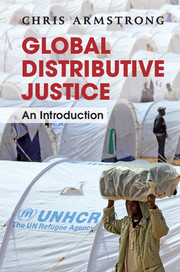8 - Global justice and migration
from II - Issues
Published online by Cambridge University Press: 05 June 2012
Summary
Throughout this book we have examined various views on the rights and duties people ought to have as a matter of justice, wherever in the world they happen to live. We have also noted the emergence of various human rights which aspire to guarantee a minimum level of provision for everyone. But it remains the case that people enjoy the vast majority of their rights and duties as members of the specific political communities in which they live. The world of separate nation states has proven an enduring feature of political life, and one which substantially affects the opportunities available to people. In that sense membership is perhaps the most significant good which is distributed between individuals, since where we are a member is hugely important in determining the other goods to which we shall have access (Walzer 1983: 63). Given the facts of global inequality, membership of some communities is a much better ‘deal’ than others.
All of this might not matter, of course, if people could simply change their membership at will. But for the vast majority of people this is not easy. For one thing, entry to another country is by and large at the discretion of the ‘receiving’ state. The nation states of the world operate relatively ‘hard’ borders, which they use military force to maintain. For another thing, even if entry to another state was granted, it is no small endeavour to save the money to relocate oneself (and perhaps one’s family) and start a new life in an unfamiliar place. Little wonder, then, that for the vast majority of us the community in which we live is also the community into which we were born. As such most of us enjoy the rights and duties we have largely as a matter of birth.
- Type
- Chapter
- Information
- Global Distributive JusticeAn Introduction, pp. 220 - 251Publisher: Cambridge University PressPrint publication year: 2012



